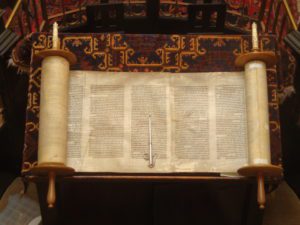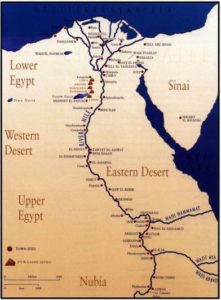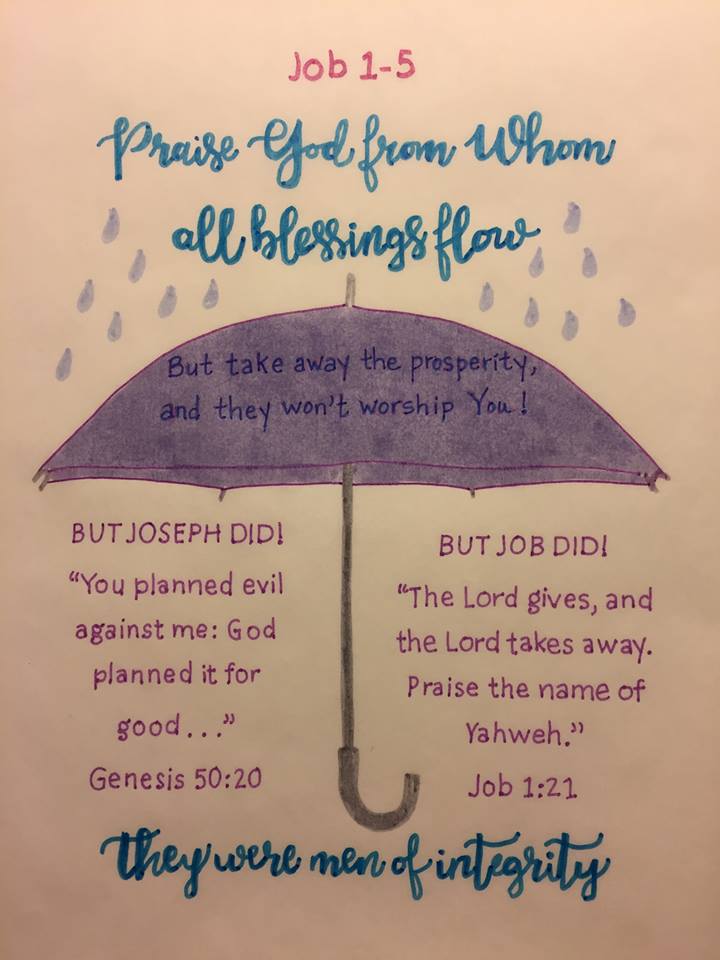Moses, Privilege of the Wilderness
In part one of this series about our attitude toward disease and death we briefly examined a story from the oldest book of the Bible, Job. Job was well-to-do, he had then lost nearly everything including his health, yet he blessed the Lord.  Today we examine part of a too-familiar story from the Pentateuch [Torah ], written by Moses. The Book of the Law, or the first five books of the Bible, are written about the Lord and relationship to man (adam), but within this story we find a man not unlike Job, a man of privilege and wealth, Moses.
Today we examine part of a too-familiar story from the Pentateuch [Torah ], written by Moses. The Book of the Law, or the first five books of the Bible, are written about the Lord and relationship to man (adam), but within this story we find a man not unlike Job, a man of privilege and wealth, Moses.
Moses may have been the most learned man on earth in his day, raised as a prince of privilege in a palace of a most powerful man who accumulated wealth and knowledge from the many corners of the world he ruled, conquered or traded. The house of Pharaoh, a throne perhaps to which Moses could have ascended upon his death, was a Rome on the Nile to which the peoples of the land looked in worship.
 Moses, Prince of Egypt, ruled over the important day-to-day projects in the extensive north-to-south agricultural empire whose glory was tied to management of the rich resources of the 4,160 mile [6670 km] long Nile River.
Moses, Prince of Egypt, ruled over the important day-to-day projects in the extensive north-to-south agricultural empire whose glory was tied to management of the rich resources of the 4,160 mile [6670 km] long Nile River.
Moses gave up much, first in fleeing for his life at age forty and later in returning at age eighty to challenge Pharaoh at the urging of the Lord, only to be led to live in the wilderness of Sinai for forty more years.
The Torah breezes quickly over typically the most notable years of a man’s life to tell most about Moses’ life after age eighty.
[ctt title=”The Torah is five Books about the LORD, not a book about Moses.” tweet=”תּוֹרָה” coverup=”U9Qna”]
![]()
Exodus 2:
Moses Flees to Midian
11 One day, when Moses had grown up, he went out to his people and looked on their burdens…
21 And Moses was content to dwell with the man [Jethro, Priest of Midian], and he gave Moses his daughter Zipporah. 22 She gave birth to a son, and he called his name Gershom, for he said, “I have been a sojourner in a foreign land.”
God Hears Israel’s Groaning
23 During those many days the king of Egypt died, and the people of Israel groaned because of their slavery and cried out for help. Their cry for rescue from slavery came up to God…
Exodus 3
The Burning Bush
Now Moses was keeping the flock of his father-in-law, Jethro, the priest of Midian, and he led his flock to the west side of the wilderness and came to Horeb, the mountain of God. 2 And the angel of the Lord appeared to him in a flame of fire out of the midst of a bush. He looked, and behold, the bush was burning, yet it was not consumed…
Most of us are fairly familiar with this part of Moses’ story, yet with minimal thought of his again comfortable life with a wife and children and a good job of shepherd. We fail to remember that much time has passed and Moses has survived his own flight from Pharaoh (father of his adoptive Egyptian mother) to establish a good life in the family of a Hebrew priest.
Now there is a new Pharaoh, perhaps a son who came to the throne of Egypt who would have grown up with Moses, a son perhaps even jealous of the many talents of the former Prince of Egypt who had fled to Midian so many years before. “Exodus 2:23 During those many days the king of Egypt died…” Easy to have missed this. Time had passed in life as always it will.
Exodus 3:
10 “Come, I will send you to Pharaoh that you may bring my people, the children of Israel, out of Egypt.” 11 But Moses said to God, “Who am I that I should go to Pharaoh and bring the children of Israel out of Egypt?” 12 He said, “But I will be with you, and this shall be the sign for you, that I have sent you: when you have brought the people out of Egypt, you shall serve God on this mountain.”
Moses is about to become (after a time) a man higher than the LORD’s High Priest, a mortal standing before the Lord as Adam had been in the very presence of the LORD! Yet first, much time would pass both in Egypt and in the wilderness.
Exodus 4:19-20
And the LORD said to Moses in Midian, “Go back to Egypt, for all the men who were seeking your life are dead.” So Moses took his wife and his sons and had them ride on a donkey, and went back to the land of Egypt. And Moses took the staff of God in his hand…
27 The Lord said to Aaron, “Go into the wilderness to meet Moses.” So he went and met him at the mountain of God and kissed him. 28 And Moses told Aaron all the words of the Lord with which he had sent him to speak, and all the signs that he had commanded him to do.
Exodus 7:
Moses and Aaron Before Pharaoh
And the Lord said to Moses, “See, I have made you like God to Pharaoh, and your brother Aaron shall be your prophet. 2 You shall speak all that I command you, and your brother Aaron shall tell Pharaoh to let the people of Israel go out of his land. 3 But I will harden Pharaoh’s heart, and though I multiply my signs and wonders in the land of Egypt,4 Pharaoh will not listen to you. Then I will lay my hand on Egypt and bring my hosts, my people the children of Israel, out of the land of Egypt by great acts of judgment.
We know well the drama to follow: plagues and suffering of both Egyptian and Hebrew. What we may have missed in the big screen dramas is how the Lord used a now ordinary old man (Moses) to lead a suffering people to the promised land. We might not see the humble weakness of old Moses in light of the powerful work the Lord would do by his own hand.
7 Now Moses was eighty years old, and Aaron eighty-three years old, when they spoke to Pharaoh.
This, of course, was prior to the suffering of the plagues to follow or forty more years of a most difficult life dependant on the manna of God in the wilderness of the Sinai.
Forty years of suffering
You’ve lived a good life, one longer than most in those days, eighty years. Would you now choose to go out into the desert as leader of a difficult people? Would you now choose to suffer the severe hard life of a nomad refugee in desperate need of water and food, a people without home or shelter?
Why would God allow this – yes, even command it?
Like Job, Moses believed the covenant promise of the Lord. God does not always call us to receive double blessing at the end of our life. The Lord does not call us to always extend our years to one hundred and twenty, with sight of the land promised to your sons and daughters.
If the Lord calls us to suffering, the loss of a child or loved one, the loss of city and home, the devastating loss of health; it is for His own righteous will and the redemption of His own worshipers.
Are you a worshiper of the Lord God? Would you humble your flesh, surrender your prideful ‘self?’
Would you sacrifice your home, your wealth and everything you have ever known before Almighty God? For the LORD IS, He will judge of our souls and redeems the lives of His own. The Lord IS and He has suffered in the flesh for your sins and for mine.
Jesus has been counted worthy of more glory than Moses—as much more glory as the builder of a house has more honor than the house itself. – Hebrews 3:3
To be continued…


Leave a Reply